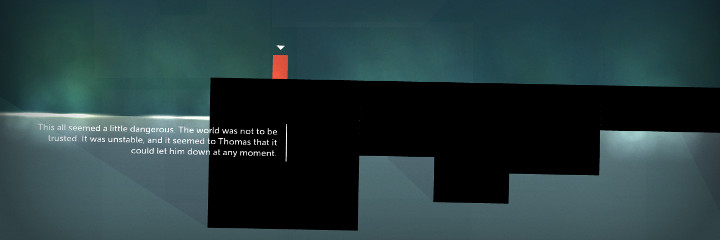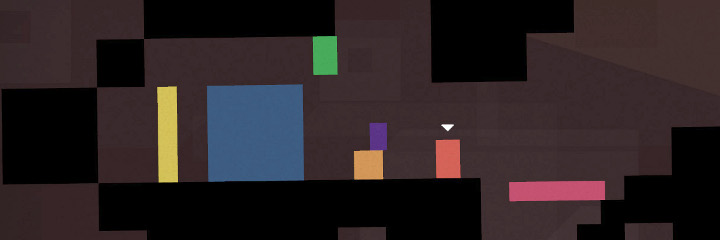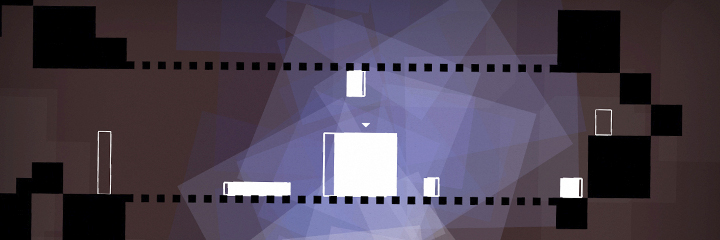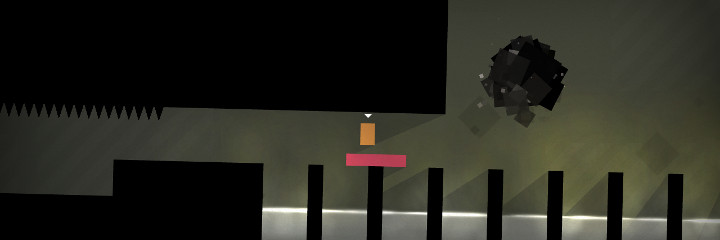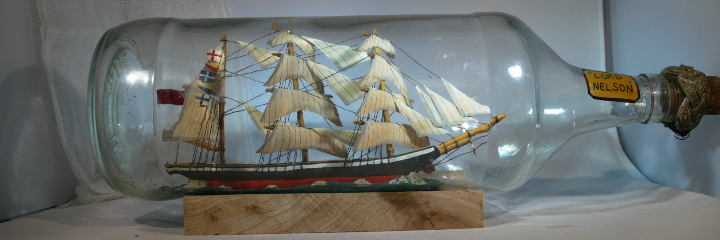Mike Bithell Talks Thomas Was Alone at Dev Night
At last week’s Dev Night, a gang of nerds had the honor of shooting the breeze with Mike Bithell, creator of Thomas Was Alone. Listen to the brilliant, British ramblings of a living teddy bear.
Q: Wasn’t Thomas Was Alone your first project with Unity?
A: That’s right. The game was a training project for teaching myself how to use Unity, so the end result was surprising. To this day, its file name is “teachingmyselfunity.proj”. I think it was a good first effort. [Laughing] I am that charming idiot who’s accidentally made something successful.
Q: Did you have any goals in mind while making the game?
A: Two. The big one was that I wanted to make a good jump. And I think there are things that work and don’t work with that jump. It frustrates me that there are still things I want to tweak with it. Second, I wanted to make good characters. So many games have characters that don’t make sense—it really bothers me. I wanted to see if I could make a game where I didn’t ever break character. I chose to set my game in an abstract world, which helped me work out a way to get around that problem. The reviews say I didn’t break character, and I guess that’s the important thing.
Q: The story and the characters—do you think they say anything about yourself?
A: Definitely. Thomas is who I want to be, but John is who I more typically am. Chris is my self-conceptualization as an artist—completely and utterly angry all of the time. They’re archetypes straight out of comic books, not real characters. Aren’t these characters in all of us? Then again, a lot of the characters’ personalities arose from player storytelling. Thomas and Chris’s personalities were culled from comments on the original Flash game–due to the game’s title, people associated the first rectangle with Thomas. The orange square is small and can’t jump very high, so commenters reasoned he must have a Napoleon complex–I pulled Chris’s personality from players’ feedback.
Q: Who’s your favorite character?
A: Thomas. I like Claire a lot, too, but she’s an easy option. I also like James—he was the most interesting character to write. A lot of people have read their own meaning into James—in my mind, he’s an outcast, or different. I wouldn’t presume to say what sort of group he belongs to, being a massively privileged white heterosexual male in the UK.
Q: How did the game’s whole aesthetic come about?
A: The game’s original flash prototype was about just getting something done. I knew the only look I could get would be to chuck in some rectangles.When I went more seriously into development, I experimented with other ideas. “Maybe the rectangles are guys in mechanical spacesuits!” These ideas weren’t very good, and took away from the game’s simplistic charm. So I went back to my history in graphic design: if I’m going to do rectangles, I’m going to fucking do rectangles. I did my research, and tried to do the best rectangle thing I could. Another friend helped me develop a color palette. I did massively overlook colorblind people, though, and I get an email about that pretty much every day.
Q: Can you tell us more about the voice acting in the game?
Originally I was thinking that the story would be told by text overlaying a world, perhaps projections of text on a wall. This turned out to be much harder than I expected, and I realized that I was either editing the text to fit the level, or the level to fit the text. So I decided to do a voice-over instead. I’m a massive fan of Danny Wallace. He’s not exactly a household name, but he’s someone who still identifiable as “that dude off the telly.” I love Danny’s voice, the way he tells a story, so he was my first choice. I tried to find an actor who could imitate him, and couldn’t, and then I got drunk and emailed him. To my surprise, he agreed to do it. He’s won a BAFTA for Thomas, which for a television person in the U.K. is a very big deal.
Q: Were you a part of the recording process?
A: Yes! I wrote the story, so I had to be there. I was quite light with the direction, though, because I was aware I was working with someone who sells a lot of books and knows how to tell a story. I was just on hand to tell him who a character was, what the context was. Danny used to review video games, so I could talk to him as a gamer, rather than as an actor. He got what I was looking for very quickly. We were only in the booth for about three hours. Nothing, really—just getting it done. It was a fun process.
Q: Do you think having a famous voice actor contributed to the game’s success?
A: I don’t think his fame specifically contributed. What did help was that Danny is famous for a reason: he’s good at what he does. My words on the page aren’t as good as when they’re spoken by Danny Wallace.
Q: The game is quite short. Did you mean for Thomas Was Alone to be played through in one sitting, like a movie?
A: Most people get through the game in two, three hours. I’d imagine that most people play like I play, in hour sessions, day by day. Most people do play through Thomas in one sitting, though. I didn’t really have a major plan for how people should schedule to play the game. I think it works best in one sitting, but honestly, I just made two hours as I would play them, and hoped that people would work around me, because I’m a prick.
Q: After playing the game, we talked a lot about its level progression, and how it doesn’t get much harder at any point. Was that intentional?
A: I didn’t want to make a game that was extremely challenging, like Super Meat Boy. I wanted to make something that people would finish, so they could hear the whole story. I was getting so self-conscious about the difficulty that I went back through and made everything easier and easier. For instance, late in the game, I added the squares you jump through that save your progress across levels. At the end of the day, I was left with a game that was very flat. But this seems to have made the game accessible–it’s very popular with six-year-olds.
Q: What was the full development time?
A: I did the flash prototype game two-and-a-half years ago in a twenty-four hour game jam. In terms of actual development total time, it probably took about a year-and-a-half of evenings and weekends; I had no social life, but luckily I have a very forgiving girlfriend. It was just a steady, methodical progress.
Q: Are you actually as nice as you seem? Hell, are you even British?
A: No, I merely create the illusion of niceness. And I’m not British, I’m German.
Q: We hear you’re working on something new. What can you tell us about it?
A: It’s almost offensively different from Thomas Was Alone. It’s consciously going against the whole rectangles and friendship thing. It’s got motion-captured characters; I’m frantically trying to add a dog to the game, just for sarcasm’s sake. I’ve been designing this game in my head since I was, like, fifteen.
Q: What are you going to do when you’re done with that?
A: Live on an island and whittle ships. So far, I’ve always come up with the next game I want to make during the boring bits of the game I’m working on. But if that doesn’t work out, there’s always living on an island and whittling ships.

